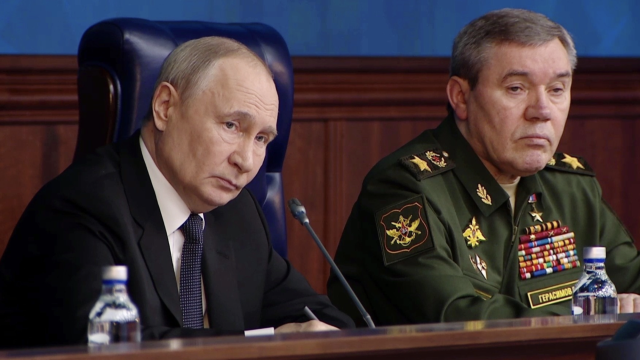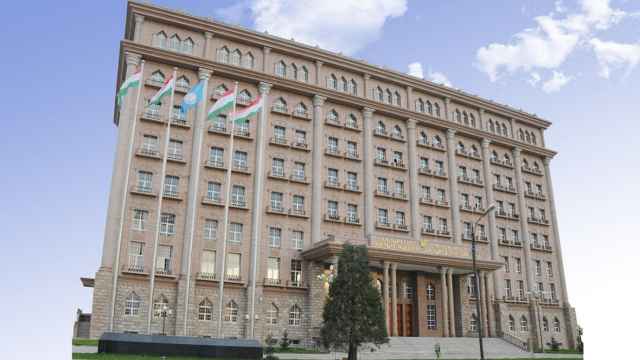Ukrainian border guards on Wednesday stopped four Russian journalists from traveling to Ukraine, saying they did not meet the financial requirements needed for entry.
Correspondent Andrei Kolesnikov and photojournalist Dmitry Azarov, both of whom work for Kommersant, were removed from a train heading to Donetsk when it reached the Ukrainian city of Kharkiv, near the border with Russia.
They were then sent back to Belgorod in Russia, Kommersant reported.
Kolesnikov, who has worked for the newspaper since 1996, is part of the so-called Kremlin pool of journalists, who are regularly accredited to cover the activities of President Vladimir Putin. He has also written a number of books about Putin.
Two other correspondents, from pro-Kremlin television channel Rossia 2, were also barred, Kolesnikov said.
Initially, border guards tried to claim the group were being denied entry into Ukraine due to a mismatch in the stated purpose of their trip, though the journalists had yet to declare their reason for travel, Kolesnikov said.
The guards later said the refusal was based on financial reasons. Last December, Ukraine adopted a decree stating that Russians need a minimum of $600 to support themselves during their stay in Ukraine, plus $100 for each additional day of their trip.
"I had 50,000 rubles with me ($1,400) for three days that I took specifically to avoid problems at the border," said Kolesnikov, adding that his colleague Azarov had 30,000 rubles with him for the same purpose.
Kolesnikov said that the journalists from Rossia 2 were treated with a lot more contempt than both himself and Azarov, with the border guards calling them "Lubyanka agents," in reference to Russia's Federal Security Services, or FSB, whose headquarters are on Lubyanskaya Ploshchad in Moscow.
The guards also erased phone contacts and computer files belonging to the Rossia 2 reporters, Kolesnikov said, adding that his own personal devices remained untouched.
A Message from The Moscow Times:
Dear readers,
We are facing unprecedented challenges. Russia's Prosecutor General's Office has designated The Moscow Times as an "undesirable" organization, criminalizing our work and putting our staff at risk of prosecution. This follows our earlier unjust labeling as a "foreign agent."
These actions are direct attempts to silence independent journalism in Russia. The authorities claim our work "discredits the decisions of the Russian leadership." We see things differently: we strive to provide accurate, unbiased reporting on Russia.
We, the journalists of The Moscow Times, refuse to be silenced. But to continue our work, we need your help.
Your support, no matter how small, makes a world of difference. If you can, please support us monthly starting from just $2. It's quick to set up, and every contribution makes a significant impact.
By supporting The Moscow Times, you're defending open, independent journalism in the face of repression. Thank you for standing with us.
Remind me later.





